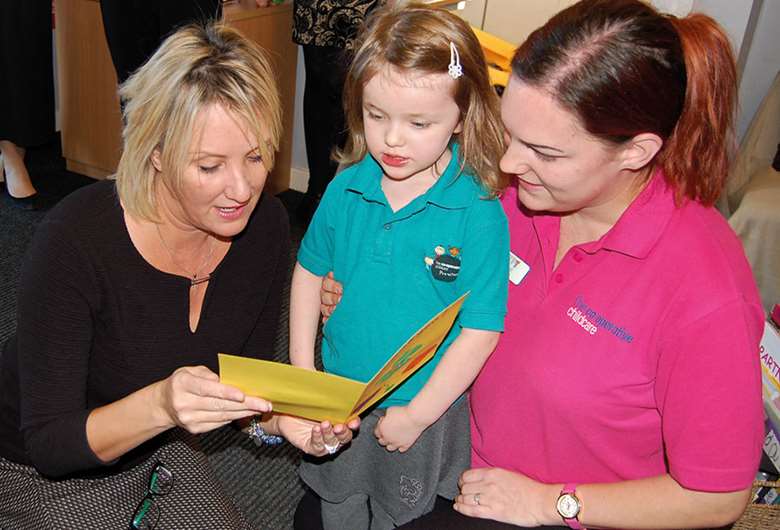More councils join 30-hour early implementer pilot
Friday, January 27, 2017
Four new local authority areas will be trialling the 30-hour childcare offer for working parents from April, ahead of the national rollout in September.

Dorset, Leicestershire, North Yorkshire and Tower Hamlets will be joining the eight other early implementer areas that have been offering the 30 hours since September.
Each area will work with nurseries, pre-schools and childminders to start offering the 30- hour free places to parents early.
The Department for Education said that this was an opportunity to test the scheme in more areas and that the data would add to evidence already collected from the other early implementers on the practicalities of delivering the 30-hour offer.
The DfE is keen to keep the momentum of the early implementers going in the run-up to full expansion. The four new early implementers will work closely with the eight existing councils, who will be advising them.
The free childcare offer will be available to all three- and four-year-olds of eligible working parents in the four new areas, excluding Bournemouth and Poole in Dorset, where the offer will be based on Dorset postcodes only because of the size of the county.
The new areas have been chosen because they will be able to test specific aspects of delivery, such as being based in rural or deprived localities. Tower Hamlets, for example, has been chosen because of the high level of deprivation.
Early years minister Caroline Dinenage said, ‘In my visits to the Early Implementer councils I’ve seen the innovative work that’s going into delivering our 30 hours offer early. Their efforts are vital to the success of the programme and these four new councils will build on the work we’ve seen so far.’
‘Our childcare offer is already helping to ease the financial burden of childcare for even more working parents.’
Commenting, the National Day Nurseries Association said that the Government had chosen three local authority areas that will receive the lowest possible level funding rates of £4.30 per hour in Leicestershire, Dorset and North Yorkshire, as well as Tower Hamlets, at one of the very highest rates of £8.51 – and that its member nurseries were already worried about insufficient funding rates.
Chief executive Purnima Tanuku, said, ‘More trials to learn from, ahead of full rollout of 30 funded hours in September, sounds positive for the families who are set to benefit from more funded childcare earlier than expected.
‘We all want 30 funded hours to work but NDNA member nurseries in these areas and others are already telling us that the rate to the local authority of £4.30 is totally inadequate to cover costs, let alone deliver high-quality care. They are extremely worried about the prospect and don’t think they can deliver more free hours without making losses.
‘Expecting nurseries to take part in 30 hours six months early and at such short notice will itself be a challenge and nurseries will need assurances both on the funding rate they will receive – which is still being negotiated at local level – and the level of freedom they will be given to offer funded places in a way that meets the needs of their parents and is sustainable for them as a business.’
Neil Leitch, chief executive of the Pre-school Learning Alliance, said, 'With the roll-out of the 30-hour offer just months away, any additional information on how the scheme is likely to impact on the early years sector – and providers in different areas of the country – is valuable, and so we welcome the extension of the early implementer scheme.
'As with the existing trial areas, however, it's important that these new pilots are a genuine reflection of how the extended offer will look when the scheme is rolled out in full, if the lessons taken from them are to have any real value.
'What's more, it's vital that that the evaluation of these pilots is an honest assessment of any challenges that have been identified. Many providers across the country have warned that the funding rates proposed by government are unsustainable, while others have said that they do not have the capacity to roll out the 30-hour offer.
'If these issues arise in the trials, they must be addressed – not dismissed – by government. If the 30-hour scheme is to have any chance of succeeding in the long term, we need to be able to have an honest conversation about the steps that government needs to take to make it work.'
Ellen Broome, deputy chief executive of Family and Childcare Trust, said, ‘It is good to see the Government’s flagship policy being tested under real conditions. Parents struggling with the high costs of childcare in these areas will also appreciate this additional help with childcare coming early. This also offers clear opportunities for learning to make this policy work, so that when it is rolled out nationally all families who need the extra support with childcare get the help they need.’




